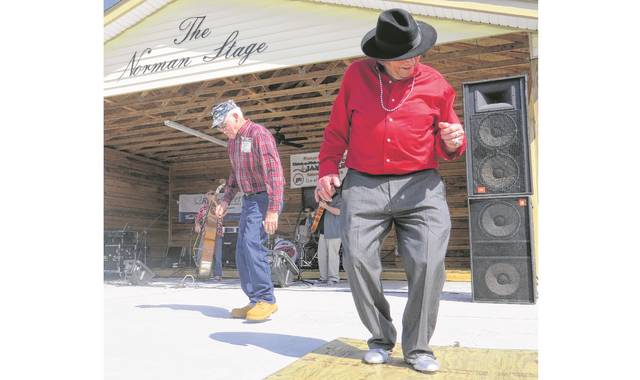
File photo
The Norman Stage is a central piece to Norman’s big annual events that have been cancelled due to the county’s change to an ad valorem sales tax distribution method.
Residents to have chance to speak
NORMAN — With the town’s fiscal outlook in serious turmoil, the Town Council here will discuss how their budget looks going forward during their regular meeting on Monday night.
All of Richmond County’s municipalities were projected to lose significant portions of their sales tax revenue because of the county commissioners’ decision to change the sales tax distribution method from per capita to ad valorem. None of them will be as strained financially as Norman, a town of 132 people per the 2010 U.S. Census. Based on numbers from the fiscal year 2018-2019 sales tax distributions, Norman would lose 100% of its sale tax revenue, or $36,000, under ad valorem.
Several local municipalities are planning to recover some of their losses by raising taxes. Norman doesn’t have this option; the town has never levied taxes to its residents, which is what makes the move to ad valorem — a method based on the amount of property tax levied — so crippling for Norman.
“Somebody said that when E.B. Hogan started the town of Norman — he was the first mayor that I know of — it was stated in some law that Norman would never charge taxes,” Mayor Pro Tem Stephen Cranford said. “That’s something we’re looking in to, trying to find it.”
The only service the town offers is street lights. Norman Town Clerk Glenda McInnis said County Manager Bryan Land advised the town to impose a tax like other municipalities had done after the change to ad valorem in a phone conversation on April 29, apparently unaware of Norman’s inability to do so. Land did not respond when asked to comment on this conversation earlier this month.
“We have discussed many times about charging taxes, but you have to pay someone to be at the town hall to collect them, and a lot of the people in Norman aren’t going to pay the taxes,” Cranford said. He also noted that Norman doesn’t have bylaws, partly because the town doesn’t have a police department to enforce those laws. That would make it even more difficult to impose taxes.
If Norman’s revenue and expenses remained the same as it was on June 30, 2019, the town would be insolvent in about three years and nine months under ad valorem.
Because of the change to ad valorem, the town council had to cut its spending on local programs like Discovery Place Kids and Stuff the Bus, as well as its donations to the local rescue squad and fire department. Norman Fest and the Chick-n-Pick-n Music Jamboree — two events that boost the local economy by bringing thousands of people to Norman annually — have been cut as well.
“If the county commissioners had let the municipalities know ahead of time, it would have given us more time to work on our budget, and possibly add our opinion of it,” Cranford said. “To me, that would have been the fairest thing to do, because Norman can’t spring back from this. That tax money was the only money we had come in.”
Residents of Norman will have a chance to share their opinions on the change to ad valorem during Monday’s meeting, which will be held in-person at Norman’s city hall. Residents who wish to speak will be able to do so during the public comment period. Cranford said he hasn’t heard any feedback from Norman residents to date, which might be because they haven’t faced any taxes or noticeable repercussions from the predicament yet.
Reach Brandon Tester at [email protected] or 910-817-2671. Follow him on Twitter @BrandonTester.
